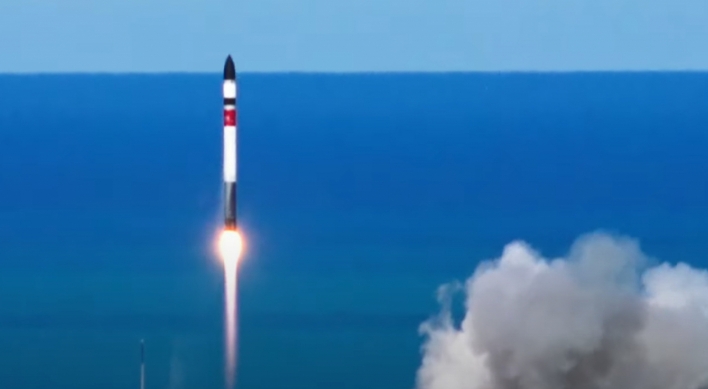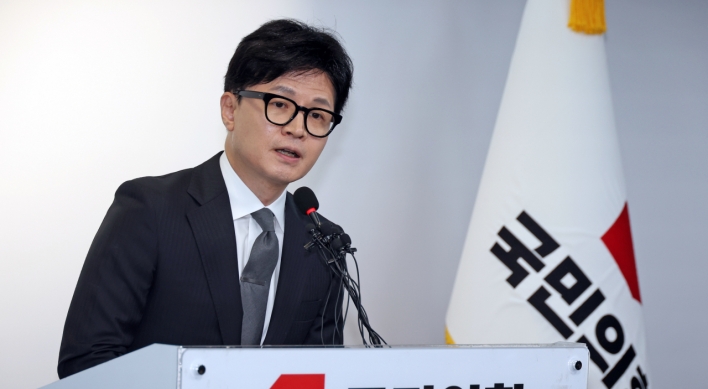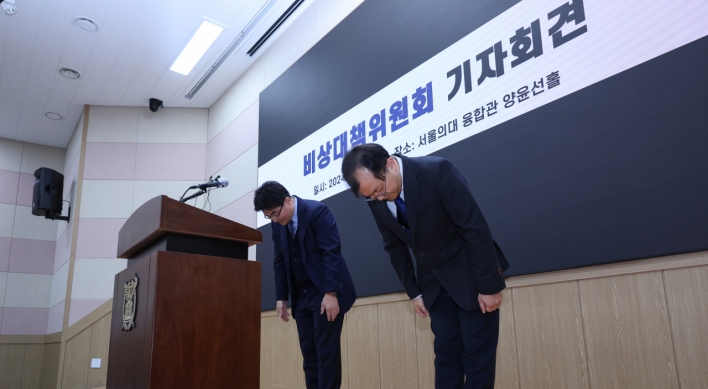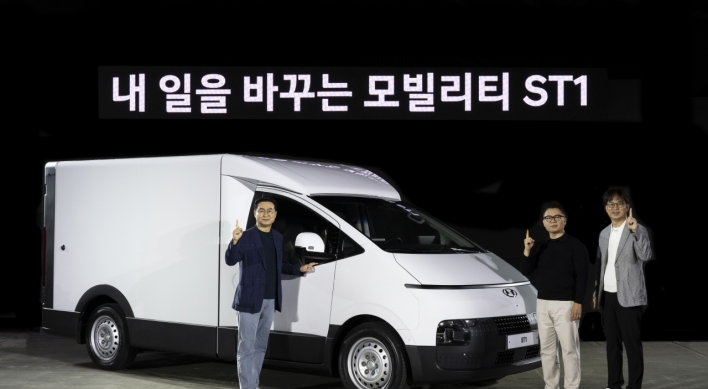South Korean firms in Gaesong complex wary of nuke test impact
By KH디지털2Published : Jan. 18, 2016 - 10:58
Located about a 10-minute drive from the tense inter-Korean border, a joint industrial complex in North Korea once again stands at the center of repeated but unwanted attention following the North's latest nuclear test.
More than 120 South Korean firms running factories at the Kaesong Industrial Complex in the North's border city of the same name remain skittish over repercussions by the North's abrupt test of a hydrogen bomb on their business activities.
Tension has flared up on the Korean Peninsula since North Korea carried out what it claimed was a successful test of an H-bomb on Jan. 6, its fourth nuke test in a decade. In response, Seoul has vowed to make the North "pay the price" for its provocation.
"We are concerned that a possible extension of tension could sap demand for our products," said an official of a South Korean company in the zone, asking not to be named. "We've managed to endure up until now, but we don't know how the situation will unfold."
A total of 124 South Korean companies are operating in the zone, some 50 kilometers northwest of Seoul, employing more than 54,000 North Korean workers to produce labor-intensive goods, such as clothes and utensils.
The industrial complex, which opened in 2004, has served as a major revenue source for the cash-strapped North, while South Korea has benefited from cheap but skilled North Korean labor.
The factory zone is the only remaining symbol of inter-Korean reconciliation as it has been recognized as an exception to Seoul's economic sanctions against Pyongyang designed to punish it for the sinking of a South Korean warship in 2010.
The operation of the complex has been highly affected by the ups and downs of inter-Korean ties.
The South Korean firms remain wary over a possible repeat of what happened back in 2013, when the complex was temporarily closed due to the North's unilateral action.
In April 2013, the North abruptly shut down the complex for about four months, citing what it called heightened tension sparked by a joint military drill between Seoul and Washington. In February of that year, the North had conducted its third nuke test.
Seoul has recently imposed an entry limit of its nationals to the complex, a move that it says is to ensure the safety of South Koreans there.
"North Korean authorities at the factory zone have not shown particular reactions to the current situation," said Shin Han-yong, president of Shinhan Trading, a manufacturer of fishing nets and other related goods.
The South Korean government said it is not considering temporarily shutting down the complex or withdrawing its people there but added whether to apply further restrictive measures will depend on North Korea.
The South Korean firms said that their business should remain intact regardless of geopolitical tension, citing a joint agreement between the two Koreas in August 2013.
Following the suspension of the complex, the two sides agreed not to shut it down again "under any circumstances," when they decided to reopen it.
"We think the operation of the complex should not be linked with how to resolve the North's nuke issue," said Yoo Chang-geun, vice chairman at the Corporate Association of Kaesong Industrial Complex. "Politics and economic activities need to be separately handled."
The United Nations Security Council is working on fresh stronger sanctions against North Korea over its latest nuclear provocation. Pyongyang has already been under a set of heavy U.N. sanctions due to its nuclear and missile tests.
Whenever inter-Korean tension has heightened, conservative critics here claim that money transfers related to the complex should be also subject to U.N. sanctions banning the transfer of bulk cash to Pyongyang.
In response to the North's nuclear test in 2013, the U.N. slapped the sanctions against the North on concerns that a massive money transfer could be misused to develop its nuclear and missile programs.
Seoul's resumption of a suspended inter-Korean tour program at Mount Kumgang in the North is pending due partly to a possible link to whether it would violate the U.N. sanctions on bulk cash.
The South Korean firms at the factory zone flatly rejected such a criticism, stressing that their cash transfer is a "fair" payment for using North Korean labor.
"We feel discouraged whenever critics make such a claim," said Jeong Gi-seob, chairman of the association of South Korean firms at the complex, adding that about US$100 million is being provided annually to the North Korean workers at the Kaesong facilities.
He said that North Korea has sent more of its workers abroad to earn hard currency since 2013, when operations at the factory zone were halted.
"We hope that the positive contributions by the Kaesong complex to inter-Korean reconciliation will be appreciated," Jeong added.
The value of production made at the complex reached $470.9 million in the first 10 months of last year, compared with $470 million for the whole year of 2014, according to the Ministry of Unification. Since its inception, the complex has produced an output valued at more than a combined $3.14 billion.
As part of efforts to expand the sales channel at home, a group of 12 South Korean companies at the complex opened a goods shop in May last year in central Seoul.
The two-story shop sells good quality products made at the complex, spanning from clothes and processed food to ornaments, for relatively low prices. It is seeking to open an online shopping mall and more distribution outlets.
"Customers do not seem to be affected by geopolitical factors when buying goods," said Kim Jin-jo, head of the Gaeseong Industrial Complex Shop. "But recently, many of them have asked questions about whether the supply of products is being maintained smoothly."
Yim Ho-il, a 73-year-old customer, expressed concerns that ongoing tension on the peninsula could hurt remaining momentum for inter-Korean economic cooperation.
"I hope that the joint industrial complex can serve as a stepping stone for the two Koreas' unification," said Yim when he stopped by the shop to buy products. (Yonhap)



![[Exclusive] Korean military set to ban iPhones over 'security' concerns](http://res.heraldm.com/phpwas/restmb_idxmake.php?idx=644&simg=/content/image/2024/04/23/20240423050599_0.jpg&u=20240423183955)

![[Graphic News] 77% of young Koreans still financially dependent](http://res.heraldm.com/phpwas/restmb_idxmake.php?idx=644&simg=/content/image/2024/04/22/20240422050762_0.gif&u=)



![[Pressure points] Leggings in public: Fashion statement or social faux pas?](http://res.heraldm.com/phpwas/restmb_idxmake.php?idx=644&simg=/content/image/2024/04/23/20240423050669_0.jpg&u=)









